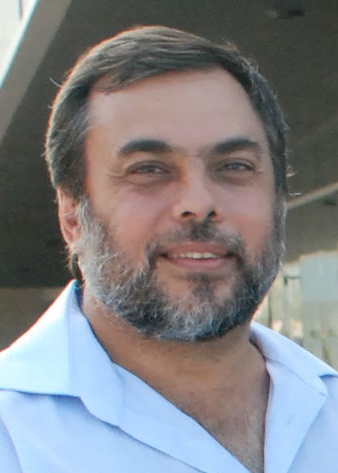Bubble-free capillary water electrolysis: A new approach to industrial water electrolysis

The Melbourne Energy Institute was pleased to host a public lecture on Tuesday 13 February 2024 with Professor Gerhard F. Swiegers, Australian Research Council Industry Laureate Fellow from the University of Wollongong.
ABOUT
Renewable, or green, hydrogen will play a critical role in the future decarbonisation of our economy, particularly of the so-called ‘hard-to-abate’ sectors like heavy transport, steel, chemicals, and aviation. However, renewable hydrogen is presently not cost-competitive with fossil fuels due to the poor energy efficiency of state-of-the-art commercial water electrolysers.
This presentation described a remarkable new technology that promises to deliver cost-competitive renewable hydrogen. The technology employs an electrochemical cell architecture in which water is fed by capillary action to the electrodes, allowing for direct production of hydrogen without the formation of gas bubbles. ‘Bubble-free’ water electrolysers of this type demonstrate system efficiencies of 95%, equating to an energy consumption of 41.5 kWh per kg hydrogen (vs. 50-53 kWh/kg by present-day commercial electrolysers). This exceeds the target of the International Renewable Energy Agency for the year 2050. The commercialisation of such technological innovations will also be reflected upon. The demand for cost-competitive green hydrogen is such that the company developing this new technology, Hysata Pty Ltd, already has an order book of more than $5 billion.
RECORDING
SPEAKER

Professor Gerhard (Gerry) F. Swiegers
Australian Research Council Industry Laureate Fellow, University of Wollongong
Gerhard (Gerry) F. Swiegers is an Australian Research Council Industry Laureate Fellow at the University of Wollongong. He received a PhD in 1991 from the University of Connecticut in the USA. Following Post-Doctoral work at the Australian National University, he joined the University of Wollongong in 1995. During 1998-2009 he was a Principal Research Scientist at the Commonwealth Scientific and Industrial Research Organisation (CSIRO). In 2010, he returned to the University of Wollongong, specialising in the commercialisation of fundamental research and bridging the academia-to-industry gap. Professor Swiegers has founded 7 spin-off companies and licensed or sold 3 new technologies in the last 20 years. His commercialisation activities have attracted an estimated $150 million in private investment thus far, and numerous awards, including two DuPont Innovation awards. He has published 2 scholarly books, 147 peer-reviewed scientific papers/chapters, and 60 patent families, comprising 366 individual patent applications. He has participated in $24.5 million of competitive grant funding. His inventions have found use in the pharmaceutical, apparel, casino chip, agricultural, automobile, energy, and other industries.
MODERATOR

Professor Michael Brear
Director, Melbourne Energy Institute, University of Melbourne
Michael Brear is a mechanical engineer and the Director of the Melbourne Energy Institute (MEI) at the University of Melbourne. MEI facilitates the University’s research on the technical, economic, environmental and social impacts of energy.
Michael is a Fellow of the Australian Academy of Technology and Engineering, the Combustion Institute, Engineers Australia and the Australian Institute of Energy. He previously established the University’s multi-disciplinary degree, the Master of Energy Systems. Prior to commencing at the University of Melbourne, Michael worked for ICI Australia (now Orica), and then undertook graduate studies at Cambridge University and post-doctoral research at the Massachusetts Institute of Technology.